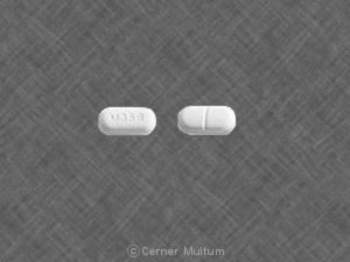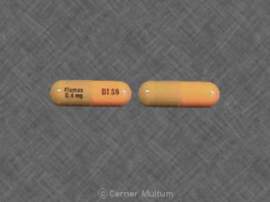
Acetaminophen Lawsuit

A Brief Guide to Filing an Acetaminophen Lawsuit:
What is Acetaminophen?
Acetaminophen is used to relieve pain from headaches, menstrual periods, colds, sore throats, toothaches, backaches, muscle aches and reactions to vaccinations. Acetaminophen may also be administered to relieve the pain of osteoarthritis. Acetaminophen belongs to a class of medications called antipyretics (fever reducers) and analgesics (pain relievers). The drug is effective by cooling the body and altering how it senses pain.
Acetaminophen Side Effects:
Acetaminophen use may cause side effects; adverse reactions may arise regardless of adherence to intake instructions. Some Acetaminophen side effects may be serious. If you experience the following Acetaminophen side effects, discontinue use and contact your doctor immediately:
Common Acetaminophen side effects include: hives; itching; swelling of the throat, tongue, lips, hands, feet, lower legs or ankles; hoarseness; difficulty swallowing or breathing; hives; and rash.
Acetaminophen side effects may take different forms; please contact your doctor if you experience any unusual problems while using this medication.
Acetaminophen is the generic name of an over-the-counter and/or prescription pain medication. Also referred to as APAP, Acetaminophen relieves pain and fever when combined with other ingredients and prescription products, including codeine, hydrocodone, oxycodone. Brand names of Acetaminophen include: Tylenol (United States), Apra, Crocin, Aspirin Free, Panadol and Panamax.
Acetaminophen lawsuits are filed by users against the manufacturer for pain and suffering resulting from the drug's rare side effects. Litigation seeking an acetaminophen settlement can proceed on grounds of dangerous side effects or inadequate manufacturing standards.
For years, possible acetaminophen side effects were not widely known. However, in 2009 the FDA updated the guidelines to include the potential development of liver damage.
There have been many cases of people filing an acetaminophen lawsuit on the grounds of liver damage. For example, in 1994 a man who had to have his liver replaced after taking the medication with wine was awarded an $8.8 million acetaminophen settlement. In another prominent acetaminophen lawsuit, a family whose one-year-old died from liver failure after taking the drug was awarded a $5 million acetaminophen settlement. The manufacturer of infant Tylenol argued the family was responsible by disregarding instructions concerning potential acetaminophen side effects including liver failure. However, the jury's verdict was in favor of the family in this acetaminophen lawsuit, because they deemed the warnings adequate.
After the FDA updated its warnings concerning acetaminophen side effects in 2009, a number of versions of the medication were recalled. Manufacturer Johnson & Johnson recalled many forms of the drug due to bacterial contamination. In response, a class-action acetaminophen lawsuit was filed on behalf of consumers who had purchased the improperly-manufactured medication. However, in 2011 this attempt to seek an acetaminophen settlement was dismissed by a Pennsylvania court. In this ruling, the judge noted that the claims made in the acetaminophen lawsuit were not specific enough to demonstrate that harm had been inflicted.
In addition to these reported acetaminophen side effects, recent studies established that the drug carries the risk of creating asthma in children. This could serve as grounds in the future to seek an acetaminophen settlement. At this time, the medication does not reflect this side effect.
The viability of litigation over acetaminophen side effects is constantly changing. Since the FDA has updated its warning on liver damage, consumers who took the drug after 2009 and experienced some problems are unlikely to be able to pursue an acetaminophen settlement related to such adverse responses. However, litigation concerning asthma acetaminophen side effects may be successful. Contact an attorney experienced in pharmaceutical litigation to evaluate the potential outcome of this effort to obtain an acetaminophen settlement. If future recalls are issued regarding improperly manufactured medication and you experience acetaminophen side effects from tainted medication, you should contact a lawyer.
Acetaminophen: FDA Regulations
The United States Food and Drug Administration recently asked manufacturers of prescription combination medications that contain Acetaminophen to limit the amount of Acetaminophen to no more than 325 milligrams in each capsule or tablet. Moreover, the FDA requires manufacturers to update labels for all prescription combination Acetaminophen products to warn of Acetaminophen side effects.
Sources:
1. DA limits acetaminophen in prescription combination products; requires liver toxicity warnings retrieved from:
http://www.fda.gov/NewsEvents/Newsroom/PressAnnouncements/ucm239894.htm
2. United States National Library of Medicine Acetaminophen retrieved from:
http://www.ncbi.nlm.nih.gov/pubmedhealth/PMH0000521/
3.http://www.fda.gov/Drugs/DrugSafety/InformationbyDrugClass/ucm165107.htm
4. http://www.fda.gov/Safety/MedWatch/SafetyInformation/SafetyAlertsforHumanMedicalProducts/ucm320610.htm



















